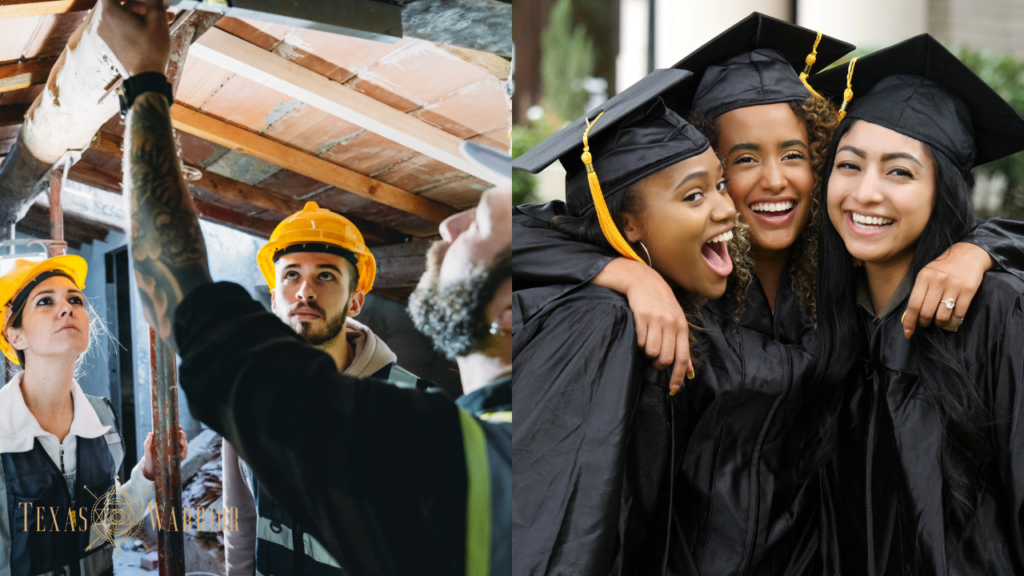Education opens up amazing opportunities, but there’s no “one perfect way” for everyone to gain knowledge and skills. In the U.S., students can pick from different education paths, with two major routes being vocational schools and traditional four-year colleges. Both options have unique upsides that resonate with different goals and career dreams. Deciding between vocational education and college means understanding what each path offers and how well it fits with what you personally want to achieve.
Vocational Schools: Learning Job-Ready Skills
Vocational education, also called career and technical education (CTE), is all about developing hands-on skills for specific jobs and trades. These programs provide practical, career-focused training in fields like auto repair, cosmetology, construction, healthcare, culinary arts, and more. Unlike traditional colleges with their wider academics, vocational schools laser in on skills that directly prepare you for the workforce.
A huge perk of the vocational route is the emphasis on getting you truly ready for a career. Students build specialized technical skills that match exactly what employers in those industries are looking for. This allows vocational graduates to dive straight into jobs right after completing their program.
International Vocational Schools conduct programs that tend to be shorter and cost less money than a four year university degree. So they’re an appealing choice for those looking to join the working world quickly without racking up massive debt.But vocational school isn’t just about the technical know-how – it’s all about learning by doing. We’re talking internships, apprenticeships, hands-on training sessions where you’re fully immersed in the real-world experience.
It’s not just skills out of a textbook. Students get to build super valuable professional connections and a genuine feel for what their chosen industry is all about before even graduating.
And employers absolutely love that vocational approach. Yeah, technical abilities are important. But they also hugely prioritize workplace essentials like problem-solving, being a team player,and strong communication – stuff you can’t fully grasp until you’re applying it on the job. The hands-on vocational method is perfect for honing those key strengths that make someone a stellar employee from day one.
Also Read : What is Funeral Stationery
The Enriching four year expedition
The different vibe from the career-focused vocational path, a traditional four year university provides an extensively enriching academic experience. Students earning degrees across the humanities, sciences, business,and liberal arts – engage with a curriculum purposefully designed to shape critical thinking, analytical reasoning, and an endless thirst for intellectual exploration.
One of the massive perks of going this college route is the emphasis on examining subjects from diverse academic lenses. By covering so many areas of study from schools like colorado aero tech, students cultivate a remarkably well-rounded perspective that expands their understanding of the world and ability to be lifelong learners. These comprehensive college programs build crucial transferable skills too – research, writing, and problem-solving mastery that pays dividends no matter what career field they end up in.
Understanding your learning style, finances, career dreams, and the resources each option provides is important. You can make an informed choice if you take the time to figure out what’s right for you individually.
You can find the path that leads to your version of lifelong success carefully.
considering vocational schools and four year colleges.
